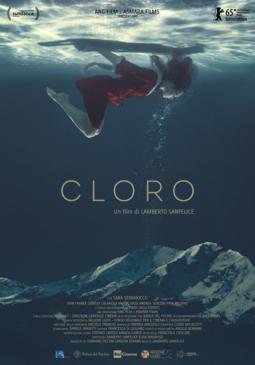|
Description
|
Jenny is 17 years old and a dream: to become a synchronised swimming champion, where she excels in the double synchro paired with her friend Flavia. His carefree life as a teenager in Ostia, on the Roman coast, is shaken by the sudden death of his mother. With her father Alfio and her little brother Fabrizio she is forced to move to a small village of few souls in the heart of Maiella, alfio's homeland. The father is in a strong depressive state, in the previous months he lost his job and the house in Ostia took back the bank. Uncle Tondino hosts them in an old mountain hut, near a hotel with a ski lift and a ski slope. Jenny is forced to find a job as a waitress at the Splendor hotel and give up her diploma. When he discovers that the hotel has a swimming pool, he decides to take a chance and go there at night to train. When his father's condition worsens, his uncle transfers him to an ancient abbey run by a priest's fraternity, to take care of him. Jenny is left alone to look after her brother and sees her dream moving away more and more every day, the child as the obstacle to her freedom. One night during training Jenny is surprised in the pool by the hotel keeper, Ivan. A relationship of night meetings will be born between the two. When his uncle finally agrees to take little Fabrizio Jenny with him, he leaves for Ostia, even if he is now struggling to separate from his brother, that child who could not bear it. Once she comes in front of her pool she watches her companions train and realizes that that world is now far from her. It represents an adolescence that no longer belongs to her. To that confined space he will prefer to swim free, in an indefinite space, in the sea. DIRECTING NOTES: A winter a few years ago I saw a girl who seemed too young to be a mother, dragging a child by the collar of her jacket to the bus stop. The child wriggled and kicked in the void as he screamed loudly in all his rage. I'il never know what happened before or what's going to happen to those two. This scene took place in a ski resort, just below the departure of the cable car. Why don't they have boots on their feet or skis in their hands? At the time it was my only thought. Jenny was born from the need to understand that scene. A girl who grew up in the pool dreaming of becoming a synchronized swimming champion. However, when events upset her family's fate, Jenny has to take care of a little brother and her sick father. At that point, teenage dreams come into conflict with the responsibilities of an early adult life. The places of history draw a kind of social geography and are closely linked to jenny's family journey. They come from Ostia, the beach of Rome, a place dedicated to holidays, to pleasure. They then find themselves catapulted into the mountains, surrounded by snow. Not a trendy ski resort, but a desolate peak in the Apennines, in the middle of Abruzzo. They are without money yet they make the opposite path compared to the migrations of the '900, often leaving Abruzzo in search of a better life. The distance between Ostia and Passo San Leonardo makes these places disconnected from each other, two spatial dimensions: the place of the present, the place where you are, and the place where you would like to be, are the basis of Jenny's dream-reality dichotomy. In this frame we borrow Jenny's eyes to wander into her new life. School abandoned for a job. A sick father who does not hide behind an elusive look a desire to live that he no longer has. A younger brother to take care of. A pool secretly used to fuel his dream. A man who understands her better than she thinks. In the midst of all this we eventually realize that reflection is another, that the story highlights Jenny's relationship with her brother. Brother from whom Jenny first seems to want to escape, but who reveals the primary affection through which the girl completes her growth as a woman. Chlorine also wants to be a reflection on the meaning of destiny. On the fact that a slight blow of wind is enough to start a series of consequences that sweep our security by forcing us to adapt to a new reality, to different perspectives or even to lose them altogether. That's why when Jenny feels that her dream is being paraded away from her and that she finds herself living someone else's life, she doesn't. She seems to want to take back what was taken from her, but perhaps more simply she rebels against the loss of her adolescence. Of that youth will remain on her skin the smell of chlorine, the smell of her dreams. (https://www.filmitalia.org/it/film/115/78520/)
|


